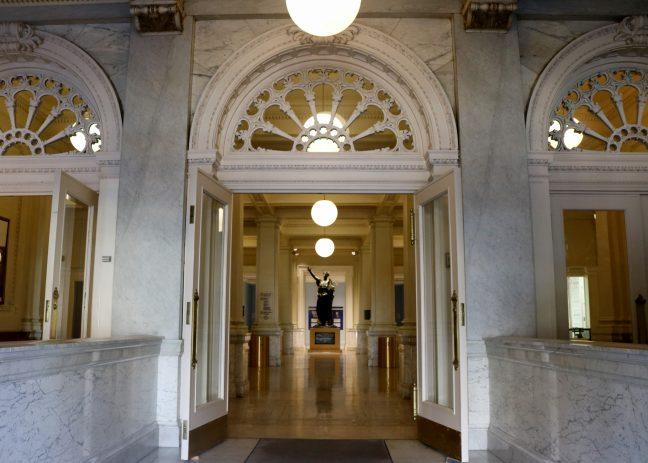It’s no secret Wisconsin has somewhat of a racist background. The University of Wisconsin itself is built on Native American land and there are often complaints from both students and faculty that the university should do more to encourage diversity and stray away from its racist past
Thankfully, the Wisconsin Historical Society has taken a step in the right direction by hiring Tanika Apaloo as adult education coordinator and Vaunce Ashby as director of education in fall 2016. These two women were hired as part of Wisconsin Historical Society’s outreach to underrepresented communities, in this case for women of color.
One of the first things Apaloo was asked to do was plan an event for 2017’s Black History Month. She decided to skip the traditional guest-speaker type of events during Black History Month and her open-house style event was a success, with the most recent 2018 celebration including a Baptist choir, traditional soul food, and spoken word poetry.
Understanding cause of bigotry among Trump supporters is crucial in mending racial divides
The hirings of both Apaloo and Ashby are extremely significant to diversifying not only the Wisconsin Historical Society but also Wisconsin itself. Apaloo and Ashby have worked to find more historical artifacts pertaining to black history and have both contributed to adding more people of color on the WHS website and in other marketing work.
To help bring a new item to WHS, Ashby drove to Milwaukee to meet with the owner of the item several times and discussed extensively how it would be displayed and described in the museum. This was a new concept as most museum employees would collect new items within one trip. What Ashby was effectively able to achieve through these actions, however, was build a relationship with the owner of the item and get as much as information as possible about the item, which led to a more effective and informative display.
In addition to discovering new items, Apaloo and Ashby have been instrumental in bringing attention to several artifacts already presenting African-American history in the museum’s archives.
Ashby said, “We get excited because we’re like, we knew it was here! We knew it was here!”
Ashby actually has a special artifact hanging in her office a museum curator gifted to her when WHS first hired her. The copy of the 1901 picture depicts an African-American family on its homestead in Pleasant Ridge.
Black, queer, proud: How a Netflix star is doing more than being a statistic
Besides their valuable contributions to Wisconsin Historical Society’s events and artifacts, Apaloo and Ashby have also served as friendly faces for other African-Americans to strike up a conversation with and have helped make people of color feel more comfortable asking questions about certain artifacts. Since they have both education backgrounds, if neither women can answer a historically-related question, they are sure to find someone who can.
Ashby, specifically, aims to educate more children about African-American history, especially those that are of African-American descent. Ashby said, “Kids want to know, just like adults, Where am I in the history of our state? Was everybody who came here a slave? When did we come? What did we do when we were here?”.
Overall, the hirings of Apaloo and Ashby signal a shift in mindset for the Wisconsin Historical Society, proving they are willing to make diversity a top priority in today’s somewhat hostile climate. This is not only valuable to people of color but to all Wisconsinites and students and faculty of the university, helping to spread the idea that diversity should be a priority and we as a school, state, and community can do better to make all people, regardless of race, feel valued.
Courtney Degen ([email protected]) is a freshman majoring in political science and intending to major in journalism.














